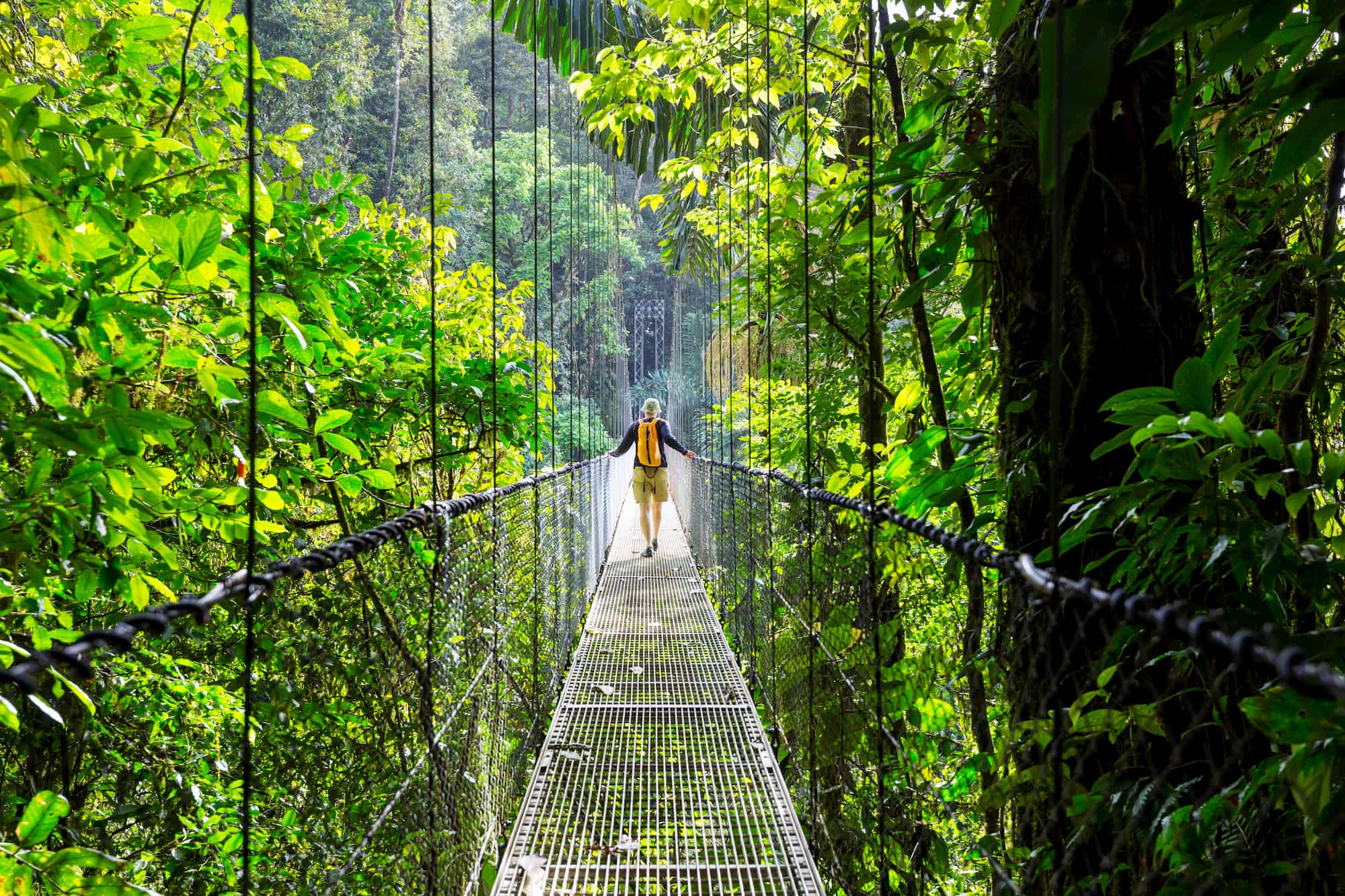In the realm of tourism, different types of ecotourism are emerging as a force for responsible and immersive travel. This form of tourism emphasizes the preservation of natural environments while fostering economic growth and cultural understanding.
From wildlife safaris to nature photography, ecotourism offers a myriad of experiences that connect travelers with the beauty and fragility of our planet.
Types of Ecotourism
Ecotourism is a form of responsible tourism that focuses on conserving the environment and supporting sustainable practices. It allows travelers to experience natural areas while promoting the protection and preservation of these destinations.Nature-based tourism is a broad category that encompasses activities such as wildlife safaris, birdwatching, and nature photography.
These activities offer unique opportunities to observe and appreciate the beauty and diversity of the natural world. However, it is crucial to engage in these activities responsibly to minimize the impact on the environment.
Wildlife Safaris
Wildlife safaris provide an immersive experience in diverse ecosystems, allowing travelers to observe animals in their natural habitats. These safaris adhere to strict guidelines to ensure minimal disturbance to wildlife and their surroundings.
Birdwatching
Birdwatching is a popular ecotourism activity that promotes the appreciation of bird diversity and conservation efforts. Birders travel to various destinations to observe and identify different bird species, contributing to scientific research and habitat protection.
Nature Photography
Nature photography captures the beauty and wonder of the natural world, promoting environmental awareness and appreciation. Ethical nature photographers follow responsible practices to minimize their impact on the environment and wildlife.
Exploring different types of ecotourism offers a unique way to connect with nature while supporting local communities. Understanding eco tourism mean helps us appreciate the significance of responsible travel. From wildlife safaris to sustainable farming tours, each type of ecotourism provides opportunities to learn about conservation efforts and support the preservation of ecosystems.
Benefits of Ecotourism
Ecotourism offers a myriad of positive impacts on local communities, contributing to sustainable development and environmental preservation. Let’s delve into its multifaceted benefits.
Economic Development and Job Creation
Ecotourism can be a catalyst for economic growth in rural and remote areas. By attracting tourists interested in experiencing natural environments, ecotourism businesses create jobs in various sectors, including hospitality, guiding, and transportation. This influx of revenue supports local economies and improves the livelihoods of residents.
Environmental Awareness and Conservation
Ecotourism promotes environmental awareness by immersing visitors in natural ecosystems. Interpretive programs and guided tours educate tourists about local flora, fauna, and conservation efforts. This increased awareness fosters a sense of responsibility and stewardship, leading to support for conservation initiatives and sustainable practices.
There are many different types of ecotourism, from nature-based activities like hiking and wildlife watching to cultural immersion and volunteering. Each type of ecotourism has its own unique benefits, and the best type for you will depend on your interests and travel style.
To learn more about eco tourism in the world, check out eco tourism in the world . Regardless of the type of ecotourism you choose, you’ll be sure to have a positive impact on the environment and local communities.
Challenges of Ecotourism
Ecotourism, while offering many benefits, is not without its challenges. It’s essential to recognize the potential negative impacts and take measures to minimize ecological damage.
Overtourism
Uncontrolled ecotourism can lead to overtourism, where the number of visitors exceeds the carrying capacity of an area. This can result in:
- Crowding and congestion
- Degradation of natural habitats
- Disruption of wildlife behavior
Habitat Destruction
Ecotourism infrastructure, such as lodges, trails, and visitor centers, can fragment and destroy natural habitats. This can disrupt wildlife movement, reduce biodiversity, and alter ecosystem dynamics.
Examples include:
- Deforestation for resort development
- Construction of roads and trails through sensitive areas
- Alteration of wetlands for visitor access
Sustainable Ecotourism Practices

Sustainable ecotourism practices are essential for protecting the environment and ensuring the long-term viability of the industry. By adopting these practices, tourism operators can minimize their impact on the natural environment and contribute to the conservation of biodiversity and ecosystems.
Responsible Waste Management
- Implementing waste reduction and recycling programs
- Using biodegradable and reusable materials
- Educating visitors about proper waste disposal
Energy Conservation
- Using energy-efficient appliances and lighting
- Promoting the use of renewable energy sources
- Optimizing building design for energy efficiency
Water Conservation, Different types of ecotourism
- Installing low-flow fixtures and appliances
- Implementing water-saving irrigation systems
- Educating visitors about water conservation practices
Following sustainable ecotourism practices is crucial for preserving the natural and cultural heritage of destinations, ensuring the well-being of local communities, and creating a positive impact on the environment. By embracing these practices, tourism operators can contribute to the long-term sustainability of the industry and create a positive legacy for future generations.
Last Recap: Different Types Of Ecotourism
As we embrace the principles of sustainable tourism, ecotourism empowers us to explore the wonders of nature while contributing to its conservation and the well-being of local communities. It’s a transformative journey that enriches our lives and safeguards our planet for generations to come.
Frequently Asked Questions
What are the main types of ecotourism?
Ecotourism encompasses a wide range of activities, including wildlife safaris, birdwatching, nature photography, hiking, and kayaking.
How does ecotourism benefit local communities?
Ecotourism creates job opportunities, supports local businesses, and promotes cultural preservation.
What are the challenges of ecotourism?
Ecotourism can pose challenges such as overtourism, habitat destruction, and pollution if not managed responsibly.
